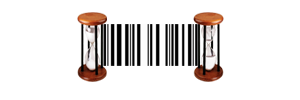The best job in the world #18 Care and Choice.
What’s normal and what’s polite?
Two words we use often but their meaning and interpretation are completely open to outside influences not to mention different age groups and the class system.
I remember a client, many years ago when asked what she liked for breakfast,replied: Oh you know, just the normal.
These days it makes me think of the expression, ‘my truth’ because ‘my normal’ is also crammed full of potential for miscommunication.
The dictionary meaning is
Standard, expected, usual and typical.
Okay, but by whose experience?
In complete contrast to live in care work I have spent the last four years, on and off, house sharing with two males. One in their thirties and the other in his fifties.
I would be hard pushed to describe ‘their normal’.
Their daily routines are far more flexible than most of the 80 and 90 year olds I know.
I won’t be around to find out but I sometimes wonder if not having a routine as such will make care plans in the future much harder?
When it comes to the Brits being polite I always think of this postcard which I keep in my goody bag.
Image of a man drowning.
The postcard in two halves. On the left: HELP
On the right:
Excuse me sir, I’m terribly sorry to bother you but I wonder if you would mind helping me for a moment, as long as it’s no trouble of course…!
**
Recently in Nice a French lady asked me for directions.
I answered in my best French but apparently my English accent still lurks…
She was enthralled as I spoke.
Ooh, you are English. I love British people, they are always SO polite.
I had to smile as I recalled a French philosopher (Rousseau or Voltaire?) who said,
The British are too busy to be polite.
So what is being polite?
Polite: Behaviour that is considerate and respectful of others.
But this can vary in different places.
For example, recently I have noticed that a simple thank you when someone has gone above and beyond elicits a different response in four countries.
You’re welcome
C’est normale
No worries
Of course!
Fairly obviously these responses are in the UK, France, Australia and USA at least, in my experience.
My interpretation of these responses is this.
Both the Brits and the Aussies are simply saying okay whereas the French and Americans are underlining the fact they feel it’s… dare I say it…normal to behave this way. It’s what we do.
Do other countries and nationalities have a set expression when responding to acts of kindness?
I imagine the Japanese may have many words depending upon the situation.
Does anyone know?
Now, if we consider what construes a ‘normal sense of humour’ then we are in really hot water.
And that deserves a blog of its own.
Meanwhile, in case anyone thinks the French in general don’t have a sense of humour, think again.
I recently saw a huge billboard outside a private French clinique. I was on a bus and not able to get a photo. You will have to trust me on this one.
It went something like this…
Saint Jean Clinique advert
In Tartiflette we trust.
Other sensations, not so reliable.
The image is of a guy skiing but with one leg up in the air, indicating an accident.
Basically, the dish, tartiflette is comfort food: Potatoes, bacon, onions, cheese and cream all baked and crispy.
So, skiing could end up with an accident but comfort food is more reliable.
Fair enough but who on earth came up with that connection?
I get it and think it’s hilarious. Maybe I should track down the originator?!
And the humour doesn’t stop there. Many local supermarches have a salad bar with a mouthwatering selection, which are also great value.
When you get to the checkout/till you are offered wooden cutlery and a paper napkin.
In this wrapper…
Image: Make salad not war!
And no, I didn’t photoshop it, it is in English.
In another life I will be fluent in French and sit in on meetings with advertising and marketing executives. They must be hilarious.
However, whenever I consider the word normal this brief encounter always comes to mind.
Sorry, if I have mentioned it before but I still think it is worth repeating.
In the 1990s I was selling educational equipment to schools in Leicestershire and Nottinghamshire. Both counties were wonderfully diverse, always welcoming ( well maybe not some school secretaries) and multicultural.
I didn’t get rich over those three years as I was often more interested in the pupils and how well they thrived and had to be reminded to actually sell things. 😉
However, one headteacher told me of one example where normalcy and being polite caused confusion when a child was reprimanded in the headteacher’s office.
Head: Look at me when I am talking to you!
This particular child is confused as in his culture it is rude to give eye contact to an adult when they are in trouble.
**
Normal and polite. Simple words but soooooooo complicated.
I think as carers we spend the first twenty four hours with a new client in their own home, testing the waters of normalcy and just hope that we are being polite, always.




Cortesía or ser cortes (in spanish) is something maybe we can learn from our elders.
Being polite has got lost a bit along the road and politeness is one of the essences of harmony.
We are travelling through times of chaos, lets make it better for us all. ❤️